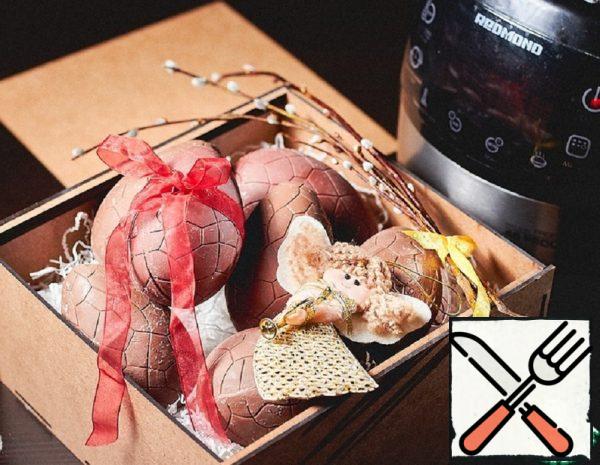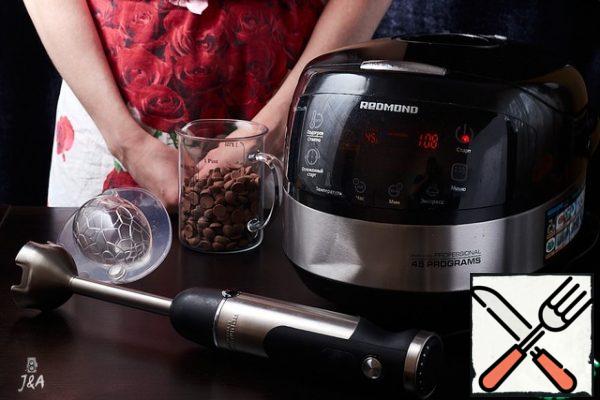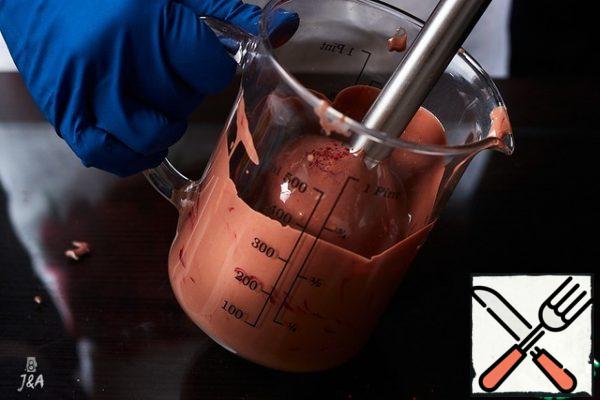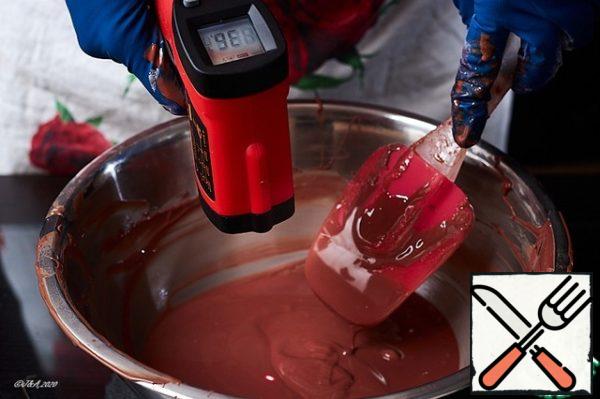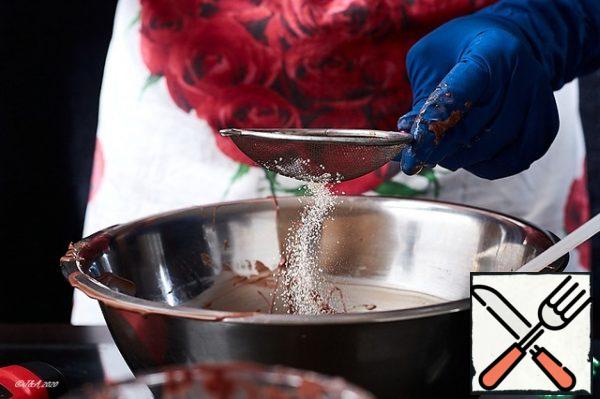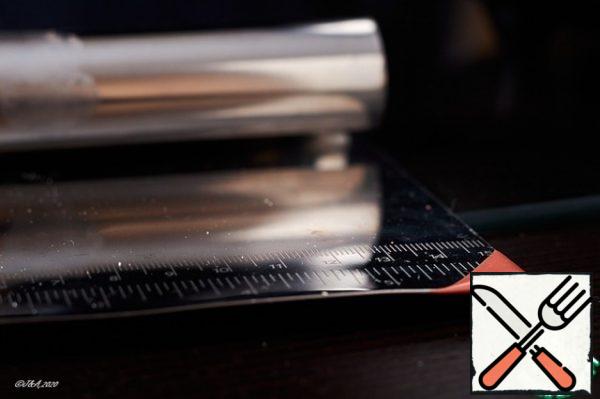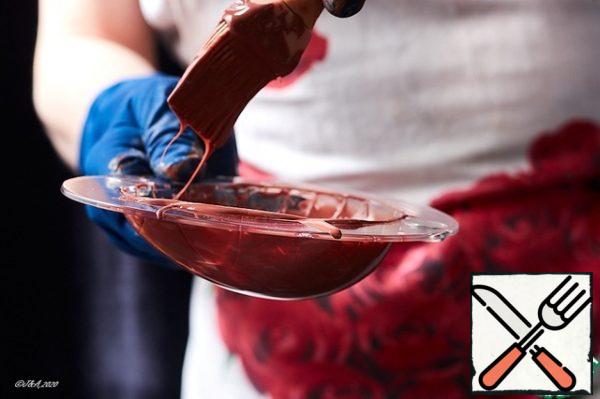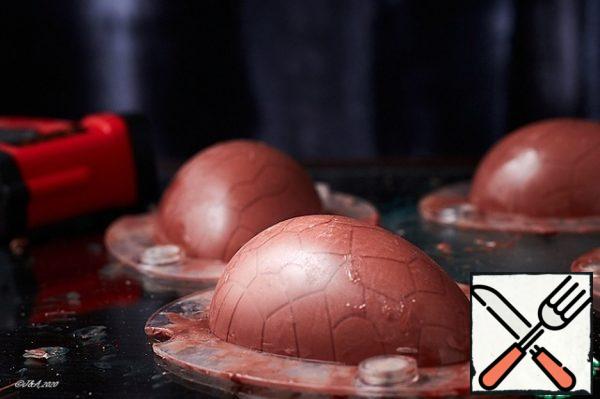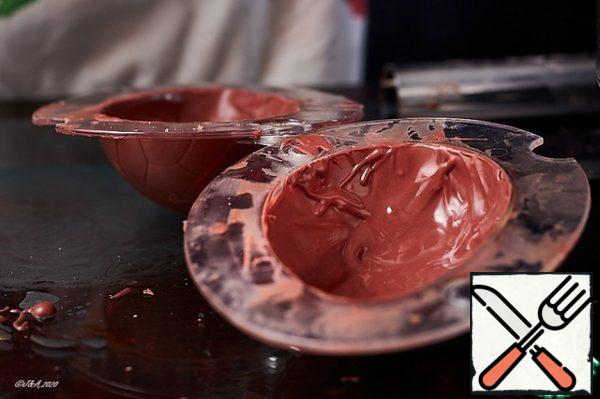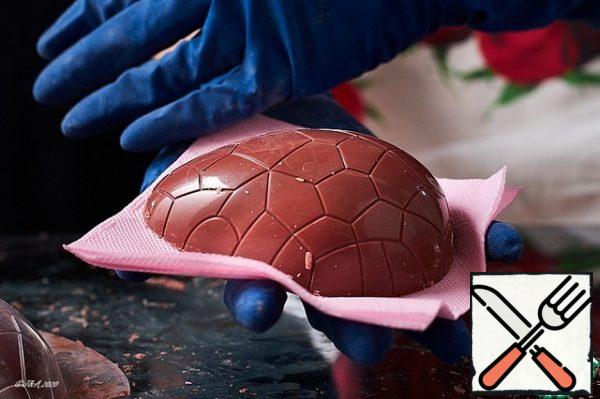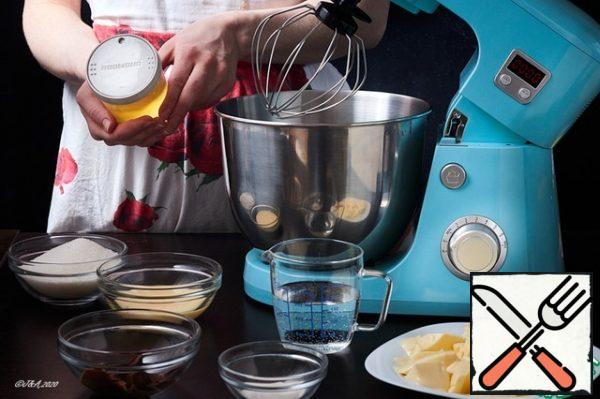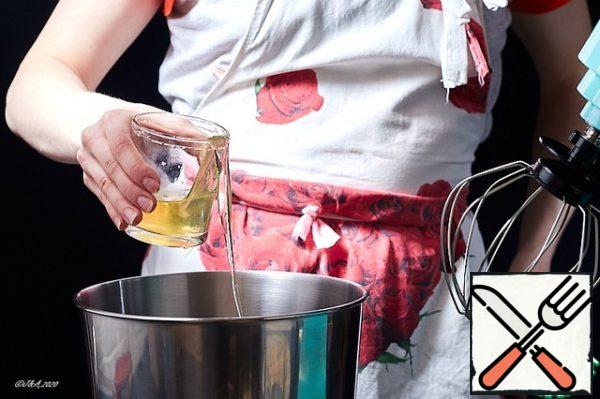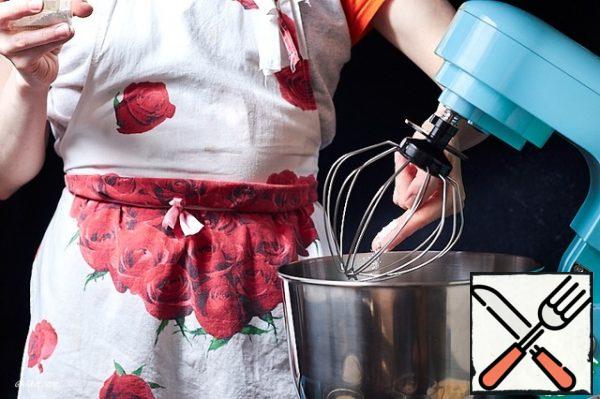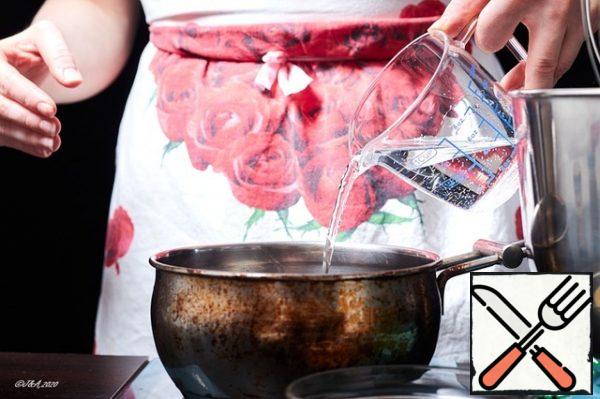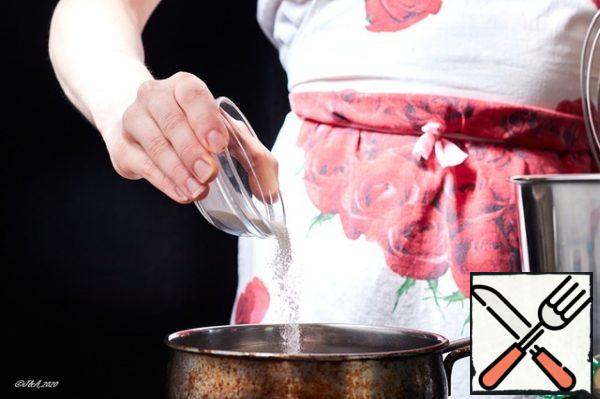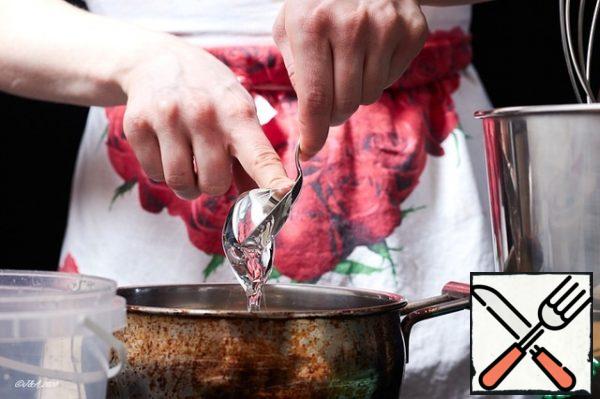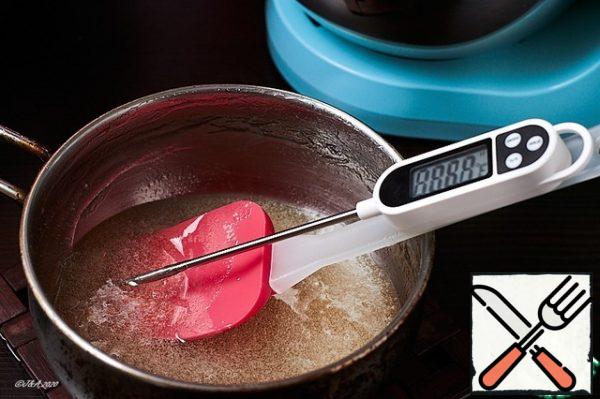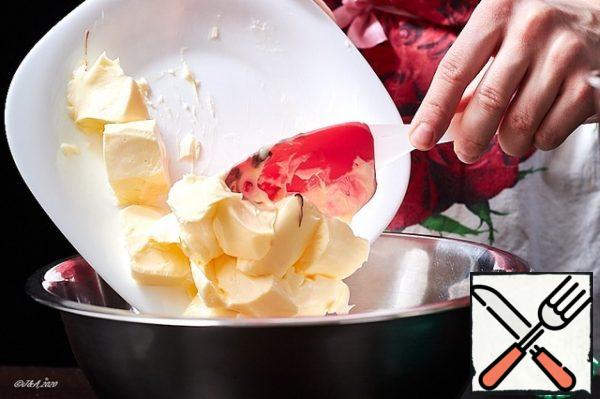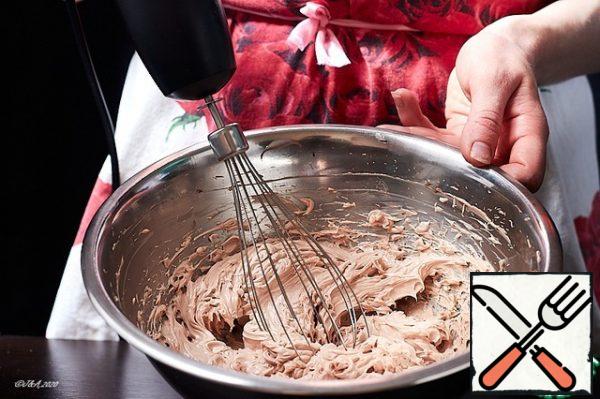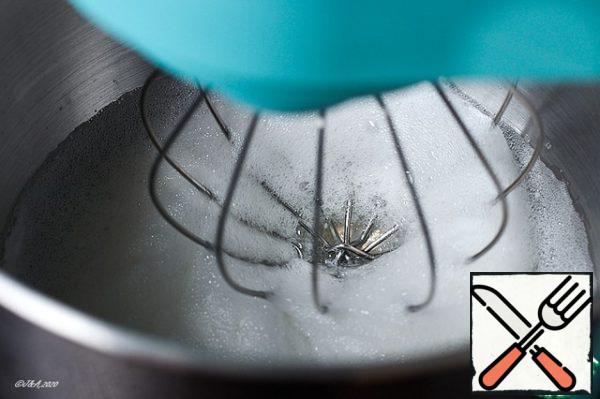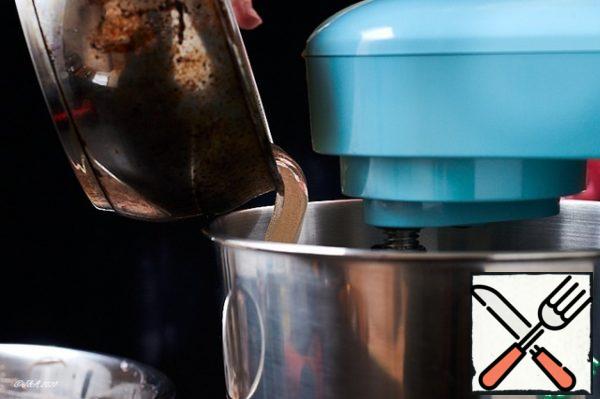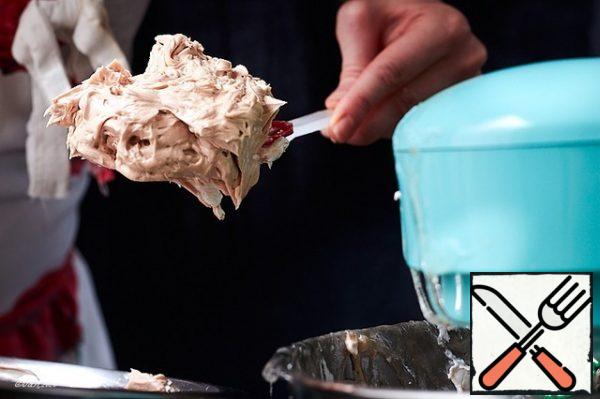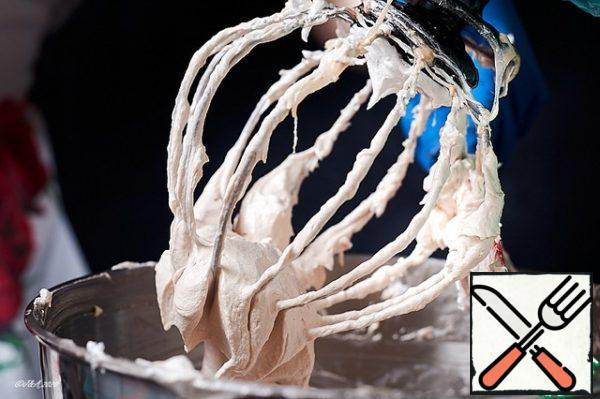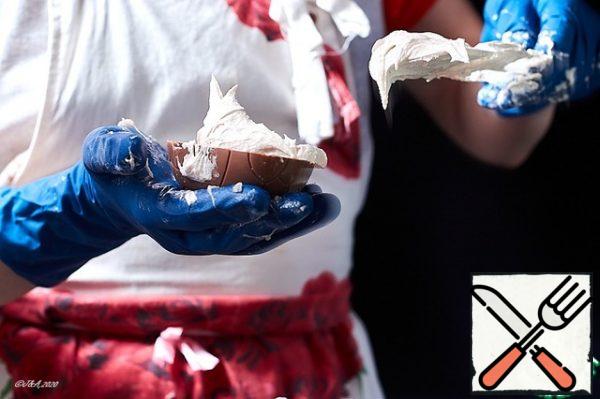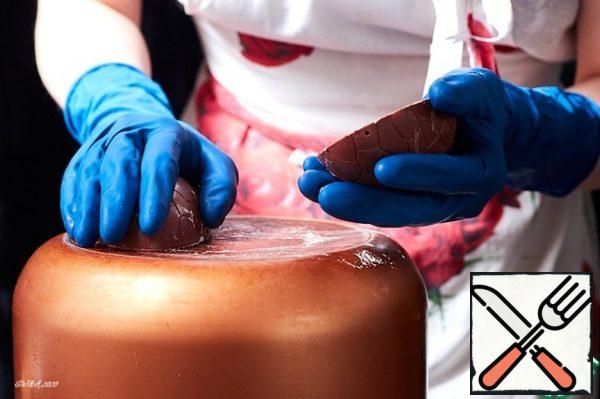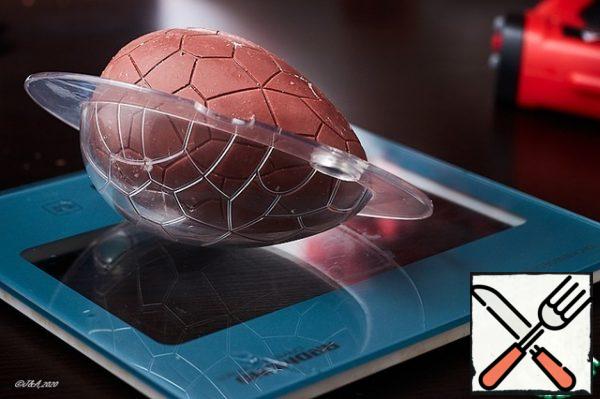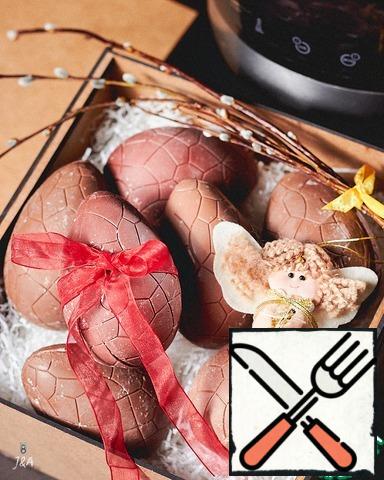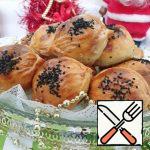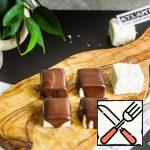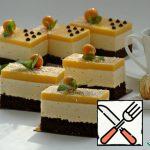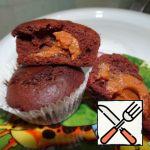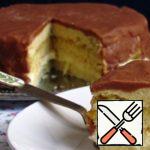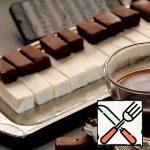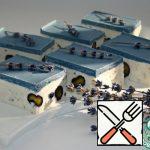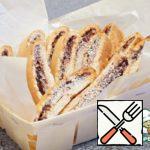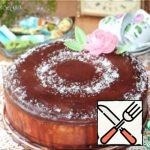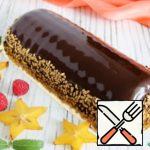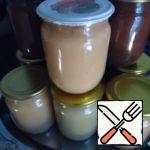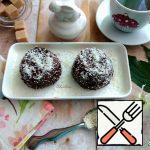Oh, we love experiments! So we decided to try ourselves as a chocolatier. This is, of course, loudly said, but there is already enough sense in making small things as a gift to friends. And now, at Easter, we decided to please everyone with chocolate eggs with the most delicate bird's milk.
| Cook Time | 120 minutes |
| Servings |
|
Ingredients
- 1 kg Milk chocolate / Chocolate in callets
- 10 gram Cocoa powder
- 70 gram Egg white
- 200 gram Butter
- 100 gram Condensed milk
- 200 gram Sugar
- 100 gram Sugar Syrup
- 5 gram Agar-agar
- 100 gram Water
- 25 gram Nutella
- 1 pinch Lemon acid
Ingredients
|
Instructions
- Suitable conditions must be created for quenching. The room temperature should be between 16°C and 22 °C. We opened the balcony. We will also need a blender and a slow cooker. To make chocolate shells, we will need chocolate according to your taste. I chose milk. We need to moderate it. First let's melt the chocolate. In order not to overheat it, it is ideal to use a Redmond slow cooker. In the "slow cooker" mode, set the temperature to 45 ° C and, stirring constantly, melt.
- Through a fine sieve, sift the cocoa butter into the chocolate, brought to the desired temperature. This is cocoa butter in powder form. The proportion of 1% of the mass of chocolate in a bowl. It took about 220-250 g for 2 eggs, until the hand is full, a lot of chocolate goes away, you gradually get used to it and it becomes easier to adjust the thickness of the walls and the rate of solidification. Although we take a maximum of 250 g, which means that we need 2.5 cocoa, and to be sure, 3 g, it's also better to take a little more, it's more reliable.
- Stir the cocoa with vigorous rubbing movements until it is completely dissolved. Perform a tempering test. Dip a cold knife or the tip of a spatula into the mass and set aside. if the chocolate has become opaque after 1.5 minutes and there are no traces of touching the lips (do not kiss it for too long, it may not stand), this means that it has reached the desired condition.
- Thoroughly wash and wipe the polycarbonate chocolate molds with lint-free napkins. Apply the chocolate either with a brush or pour it inside the mold and shake vigorously along the walls. The ideal thickness of the shell of this size (10 mm * 7 mm) is 1.5-2 mm. It won't work the first time, but it's a matter of technique. Pour the excess into the bowl of the slow cooker, we will need them, we will pickle them again for the next one.
- I put a glass on the table (the cool pros have a marble slab, but I don't need it), it keeps the temperature well (it's cold here, 20 * C). Turn the molds over on it and let them stand until ready. Readiness is easy to determine - it will move away from the walls, you will see a gap. The colder the room, the faster it will happen.
- That's how it will be, shiny, durable. My hands are very hot, so I work with gloves. Ordinary nitrile ones will do. I had seven eggs. It can be stored in napkins in a container with an airtight lid at a temperature of 18-20 * C. It is undesirable to store in the refrigerator, it may turn gray from sudden changes. But if it's hot, it's better to put it in the refrigerator.
